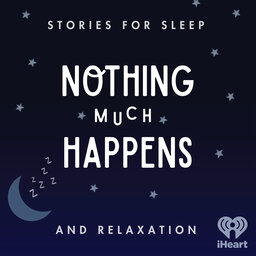Rosemary For Remembrance (Encore)
Originally Aired: October 6th, 2019 (Season 4 Episode 6)
Our story tonight is called Rosemary, for Remembrance and it’s a story about preparing a garden for the coming frost. It’s also about a row of pumpkins waiting to be claimed, what the poets have to say about herbs, and the unending generosity of nature.
So get cozy and ready to sleep.
Subscribe to our bonus and ad-free episodes, request a cameo from Kathryn, and learn more about the village of Nothing Much at www.nothingmuchhappens.com
 Nothing much happens: bedtime stories to help you sleep
Nothing much happens: bedtime stories to help you sleep


